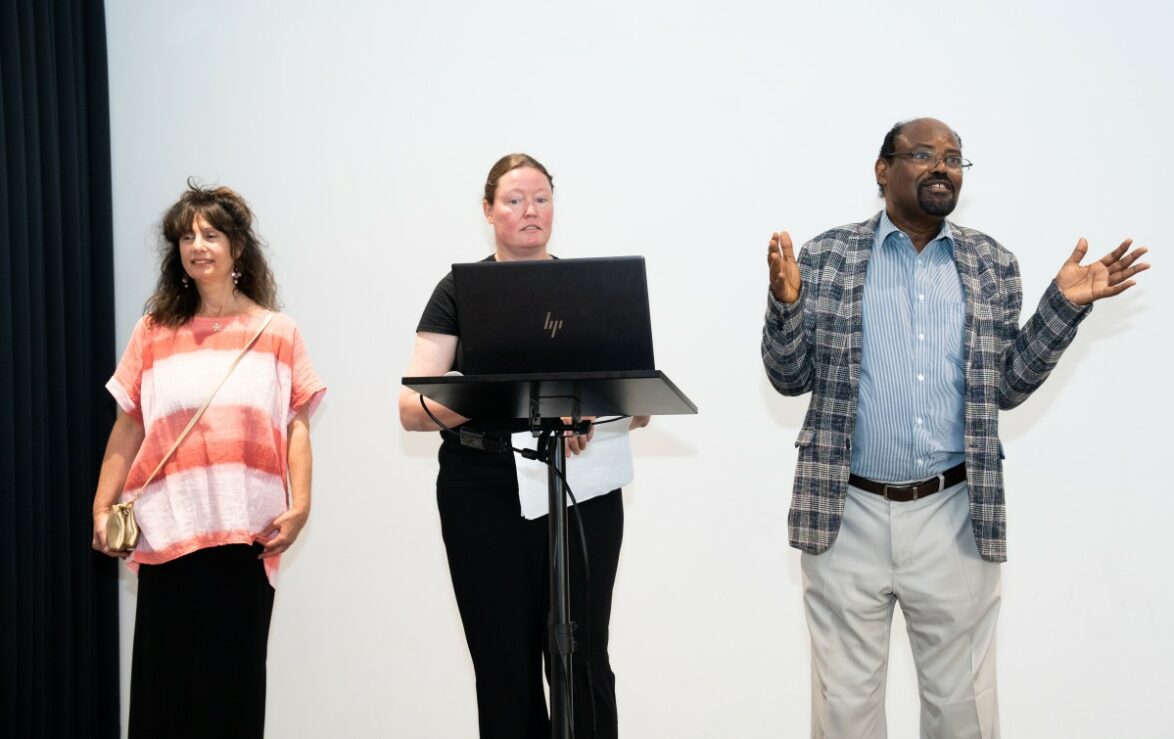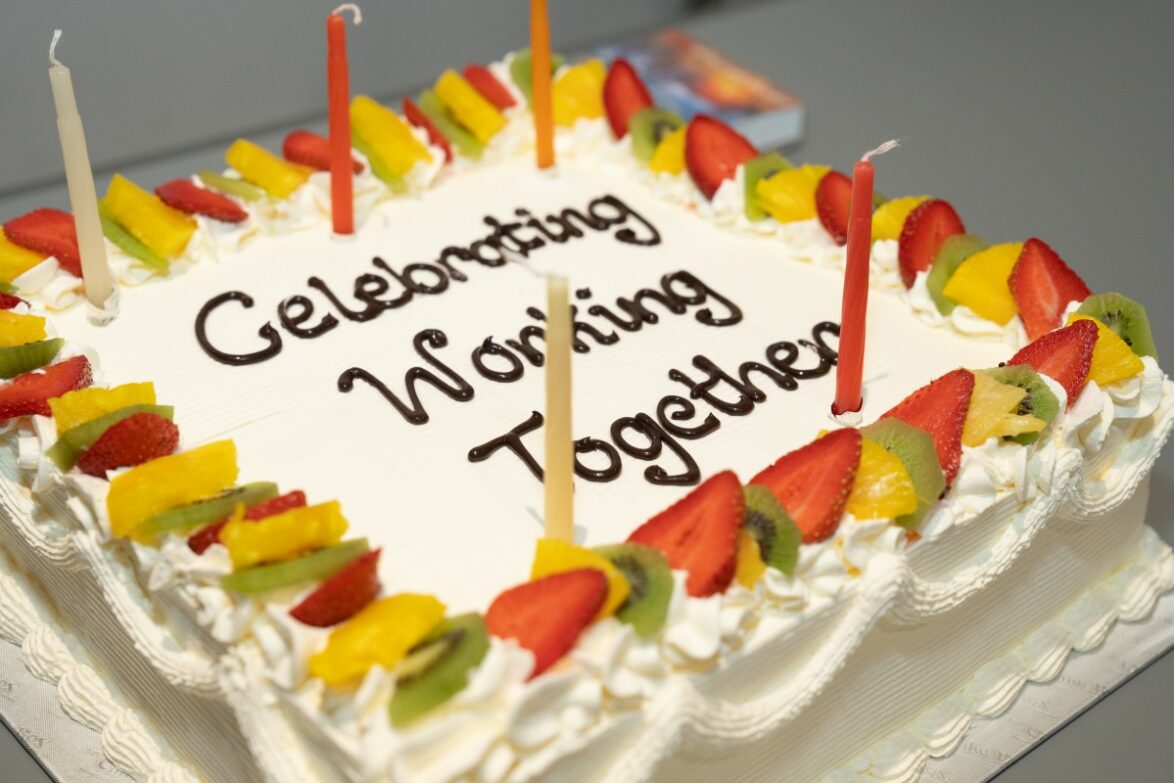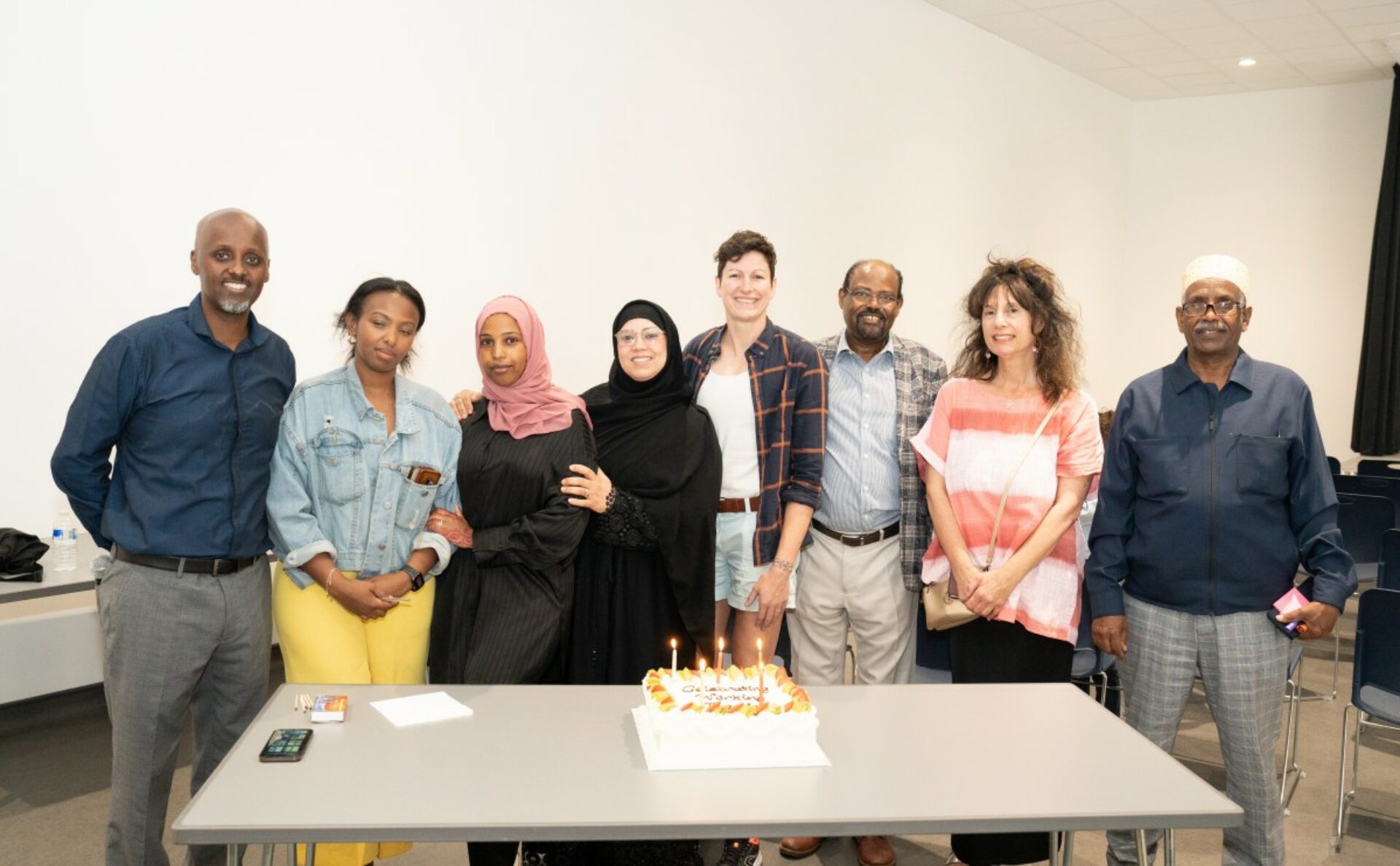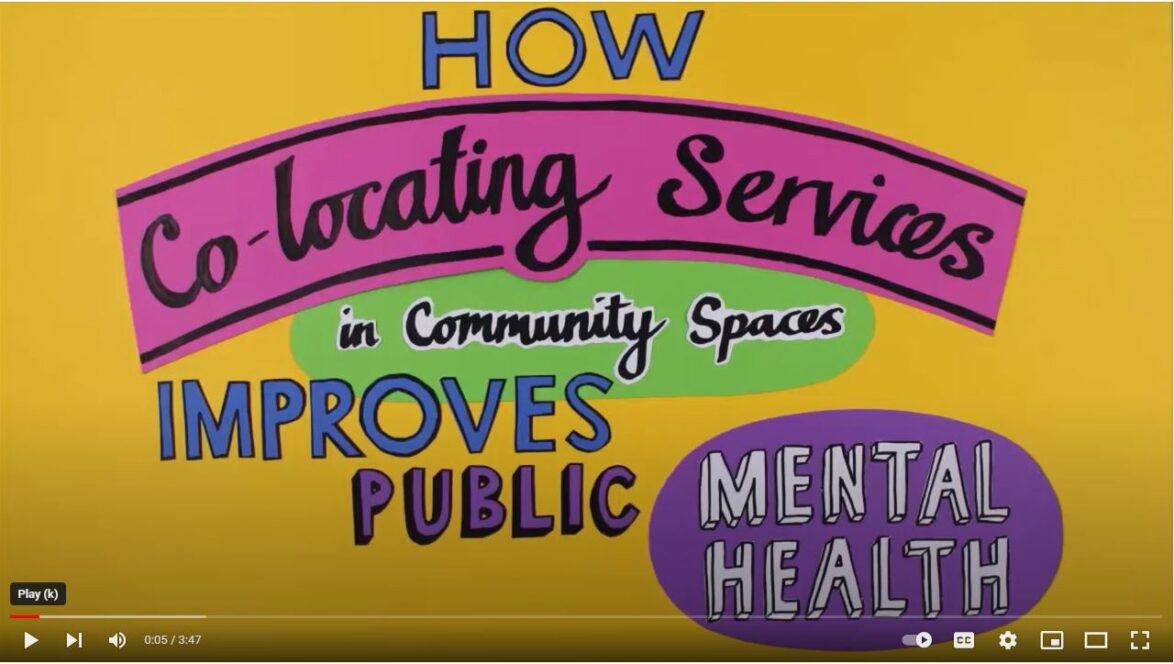Image: Gillian and the team co-delivering findings at a celebratory event for the community, peer researchers and academics who co-produced the study together.
Working in partnerships with groups outside of academia can create lasting relationships that ensure mental health research has real-world impact. Gillian Samuel, Public Involvement Coordinator and Peer researcher at McPin, and the research team in which she was embedded, found both meaning and connection through working with partners.
Access to mental health services should be easier and fairer. When multiple services work together in the same space, this is known as co-location. Examples include legal advice and/or befriending services that sit within a library, foodbank, community centre or faith building.
Gillian’s involvement in the NIHR-funded study, looking at ‘Co-location across the nation’ did exactly what it said on the tin. Its aim? To understand if co-located services and this way of working influences positive mental health across adult populations.
The study found that community-based co-location provided holistic support that led to increased feelings of hope and empowerment amongst its service users. When supportive services operate in partnership with one another the positive impact is greater. Gillian also found this to be true when working with partners to co-produce the study.
Working together for impact
The study took place in six locations across England, one of them being Northwest London. In this area, a community hub was discovered, serving minority ethnic populations, migrants and refugees from the Somali and Arab community.
How did this lead to co-producing the study?
Gillian, who has worked in community engagement for many years, understood that cold calling may not be the answer when trying to identify a co-located service willing to participate in the study.
Instead, Gillian’s method was to reach out to existing contacts, whereby mutual respect and trust had previously been established. Through this, she was able to link with the right community leader willing to introduce her to a community hub named ‘Harrow Association of Somali Voluntary Organisations’ (HASVO), a charity dedicated to supporting ethnic minority residents in Harrow.
If someone knows you and your past work, and you’ve built a mutual trust, you can advocate for each other.
Gillian Samuels, Public Involvement Coordinator and Peer researcher
Over several months, Gillian and the research team, together with many people in HASVO, co-developed and co-produced the work; interviews and focus groups were held, the community leaders invited the participation of users of their services, organisations and others who had a direct interest in this research. The project concluded with a large community event being held which co-delivered and discussed the research findings and celebrated working in partnership.
What collective ownership can achieve
A community leader from the HASVO talks about the process and the sense of pride that co-production brought them:
“The aspects that illustrated best for our working partnership was the delight of presenting something that we felt belonged to all of us. The high turnover and participation of community and voluntary organisations from Harrow and the simplification of presenting the findings to fit the audience by the research team and HASVO.
Overall, the event showed the culmination of a process that began with the initial dialogue between the different organisations who have decided to work together on a new initiative – a process that involved reaching out participants, organising interviews, meetings, rehearsing and agreeing on the outcomes.
The event has benefited from the specialist expertise, leadership and collective ownership between different bodies involved. That talent and partnership was visible on the day which made me feel proud to be part of such an event.”

Career highlights for researchers
Working in partnership is often also a richer experience for members of the research team. One academic lead researcher on the project said:
“I felt collaborative working was a strength on how we produced the research, collected data, shared the findings and understanding of the research with the wider community/public. From the perspective as a researcher it is rewarding, effective, engaging and fun, and was left with a feeling that through these conversations we can change things for the better.”
Another academic lead on the research team reflected on the deep connection they felt with the work and the project partners:
“For me, working on the project was one of the times I felt most connected with and to the communities our research should serve. This stood out particularly at the end of project event, where members of the public, the research team, and the organisations involved intermingled and conversations could have gone on all day.
There was a real energy in the room, an openness to challenging ideas constructively, and a willingness to share very personal experiences and opinions that I’m not sure would have happened without the leverage of the trust and reputation of HASVO. It reinforced for me that truly working in partnership moves beyond the practical to the personal – as researchers we have to work not only with but also for the communities our research can impact.”
Make sure you celebrate
Academic research doesn’t have to be delivered or disseminated in a dry way, says Gillian. For example, everyone involved in HASVO established early on that the research findings would be shared and discussed with the community.
This resulted in a large event, on the hottest day of the year, celebrating our working in partnership. Hosted by HASVO, the event was staged in a well equipped hall, where members of the Somali and Arab community congregated together with the research team and local stakeholders to discuss the findings of the study. Conversations around tables and over lunch revealed a wealth of opinions, knowledge and questions.
The biggest take home however, was the celebratory cake where people volunteered to light a candle and speak about the help that they have received by using HASVO, bringing tears to the eyes of many.

Gillian’s tips for partnership working
- Recognise that trust is a crucial element in co-production
- Discuss how people might benefit from the study on an individual level, but also how their wider community might benefit also
- Early on, work with people on how to share your results not just on how to deliver the research
- Remember that the end of the study should not be the end of the relationship
- Avoid rigid ways of working – some people you’re working with might want to step up to become co-producers, helping to shape the project for the better
- When costing your project, always factor in costs of translation and signers at interviews and events
- Take time to celebrate! Food always brings people together and a cake with candles creates a feeling of unity and joy
Learn more about the NIHR-funded study: Co location across the nation. Watch the project summary video.
Gillian Samuel is a Public Involvement Coordinator and Peer researcher at McPin


